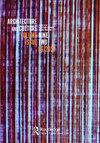来自全球员工室的故事:与Effy Harle和Jos Boys合作的关爱和不变建筑体验
IF 1.8
0 ARCHITECTURE
引用次数: 0
摘要
摘要从艺术家和制造商Effy Harle和the DisNormal Architecture Project的联合创始人Jos Boys、Manual Labours(Sophie Hope和Jenny Richards)的作品中学习,批判性地研究了他们在播客系列《全球员工播客》中的对话摘录,该播客反映了员工室作为一个概念、虚拟和物理空间的体验和关系。在与交叉女权主义理论、建筑理论和社会再生产理论的对话中,我们认为不同工作场所的员工室建筑及其紧张关系是一个压迫和排斥的空间,也是一个变革、集体和团结的空间。最后,我们主张对员工休息室进行口头和交叉分析,以在基于工资的种族资本主义框架内干预其再生产,并将其从固定工作场所和工人的概念中根除:为工作后的想象建立一个员工休息室,以我们的不同需求和欲望为基础进行前瞻性的护理。本文章由计算机程序翻译,如有差异,请以英文原文为准。
Stories from the Global Staffroom: Experiences of Caring and Uncaring Architectures at work with Effy Harle and Jos Boys
Abstract Learning from the work of artist and maker, Effy Harle and cofounder of The DisOrdinary Architecture Project, Jos Boys, Manual Labours (Sophie Hope and Jenny Richards) critically examine an excerpt of their conversation from the podcast series The Global Staffroom Podcasts which reflects on experiences of and relationships to the staffroom both as a concept, virtual and physical space. In dialogue with intersectional feminist theory, architecture theory and social reproduction theory we consider the architecture of the staffroom in different workplaces and its tensions as a space for oppression and exclusion but also transformation, collectivity and solidarity. We conclude advocating for oral and intersectional analyses of the staffroom to intervene in its reproduction within a wage-based racial capitalist framework, and as a way to uproot it from the notion of a fixed workplace and worker: to build a staffroom for a post work imaginary that foregrounds care on the basis of our differential needs and desires.
求助全文
通过发布文献求助,成功后即可免费获取论文全文。
去求助
来源期刊

Architecture and Culture
ARCHITECTURE-
CiteScore
0.80
自引率
0.00%
发文量
25
期刊介绍:
Architecture and Culture, the international award winning, peer-reviewed journal of the Architectural Humanities Research Association, investigates the relationship between architecture and the culture that shapes and is shaped by it. Whether culture is understood extensively, as shared experience of everyday life, or in terms of the rules and habits of different disciplinary practices, Architecture and Culture asks how architecture participates in and engages with it – and how both culture and architecture might be reciprocally transformed. Architecture and Culture publishes exploratory research that is purposively imaginative, rigorously speculative, visually and verbally stimulating. From architects, artists and urban designers, film-makers, animators and poets, from historians of culture and architecture, from geographers, anthropologists and other social scientists, from thinkers and writers of all kinds, established and new, it solicits essays, critical reviews, interviews, fictional narratives in both images and words, art and building projects, and design hypotheses. Architecture and Culture aims to promote a conversation between all those who are curious about what architecture might be and what it can do.
 求助内容:
求助内容: 应助结果提醒方式:
应助结果提醒方式:


